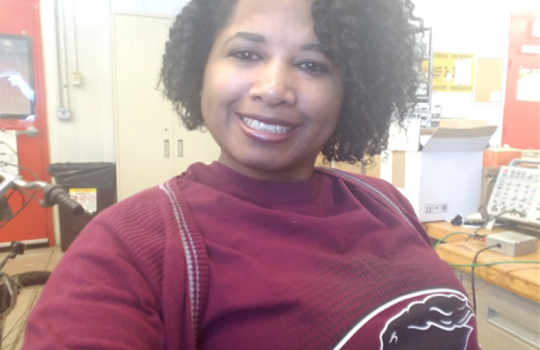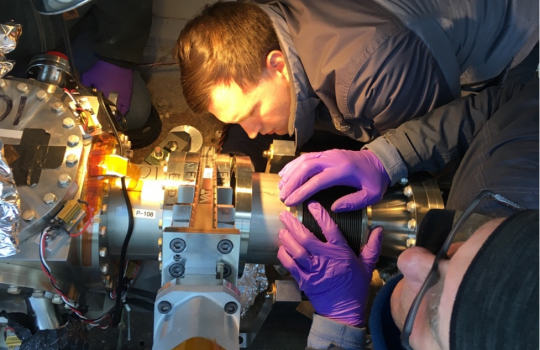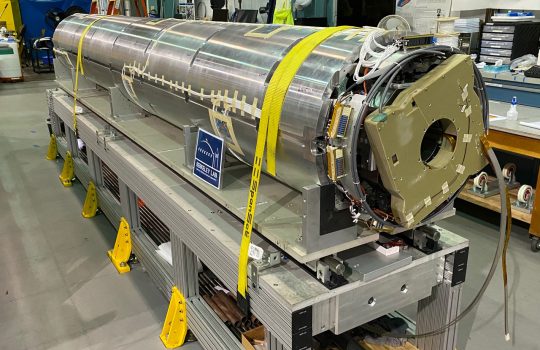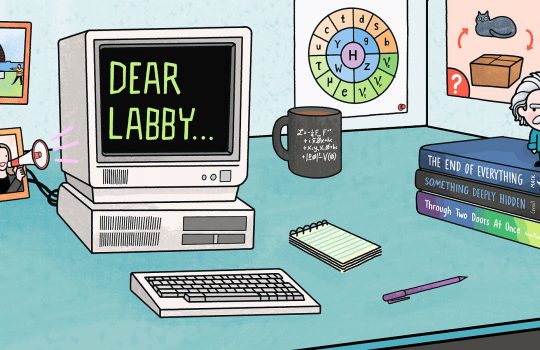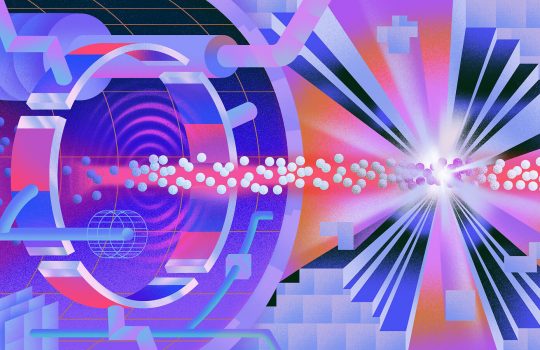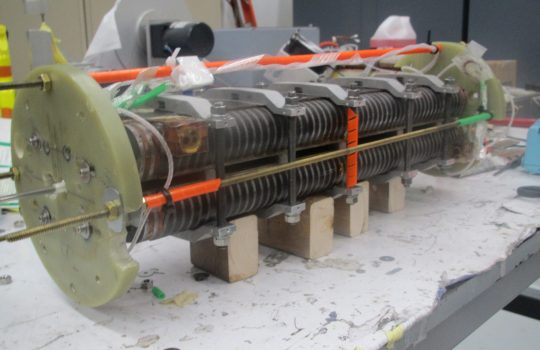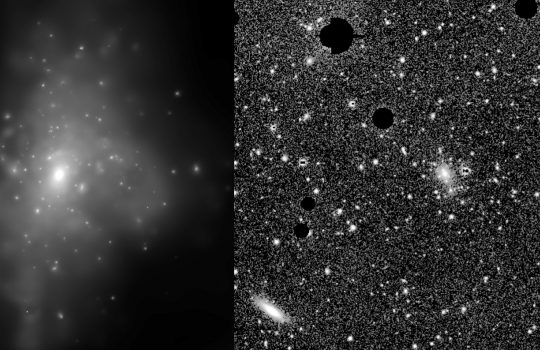One minute with Roshanda Spillers, accelerator electronics technician
Roshanda Spillers is a lifelong student. With five academic degrees under her belt and more to come, she’s one of the vital lab staff who make sure that the experiments’ electronics are in working order and that the particle accelerators are well-maintained. A new grandmother who’s learning piano while going to school, she encourages those who love science to pursue their dreams relentlessly.

